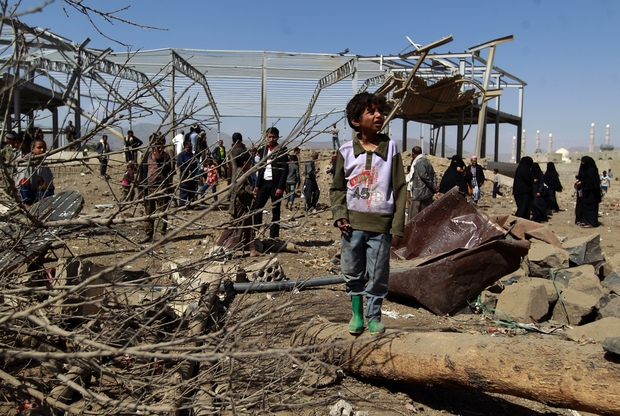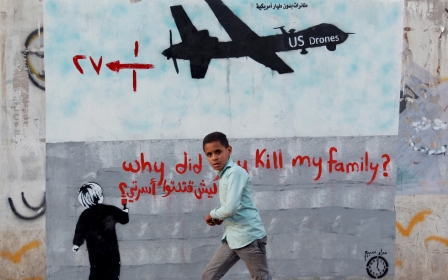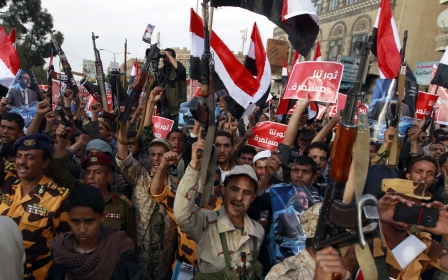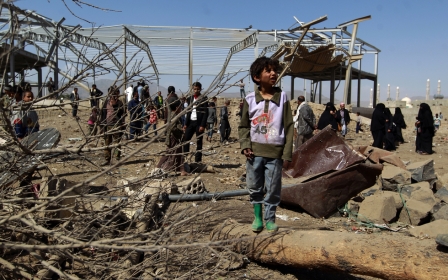US bombs used in Yemen market strikes that killed at least 97, says HRW

Human Rights Watch said on Thursday that bombs supplied by the US were used in Saudi-led air strikes on a market in Yemen that killed at least 97 civilians including children.
The two strikes in the northern village of Mastaba on 15 March "caused indiscriminate or foreseeably disproportionate loss of civilian life, in violation of the laws of war," HRW said in a statement.
At least 25 children were among those killed, the organisations said, reiterating its call for an end to arms sales to Saudi Arabia, which is leading an Arab coalition battling rebels in support of Yemen's government.
HRW said that it conducted an on-site investigation and found remnants of "a GBU-31 satellite-guided bomb, which consists of a US-supplied MK-84 2,000-pound bomb mated with a JDAM satellite guidance kit, also US-supplied".
The accusation came as US Secretary of State John Kerry visited the Gulf for talks with Washington's traditional allies, including Saudi Arabia, which has led a military campaign against the Houthis since March 2015.
"One of the deadliest strikes against civilians in Yemen's year-long war involved US-supplied weapons, illustrating tragically why countries should stop selling arms to Saudi Arabia," said HRW researcher Priyanka Motaparthy.
"The US and other coalition allies should send a clear message to Saudi Arabia that they want no part in unlawful killings of civilians," she added.
HRW said the strikes on the market may have also killed 10 Houthis.
The UN children's agency UNICEF said at the time that the air strikes killed 119 people, including 22 children.
Rights groups have repeatedly urged the US and other nations to stop selling arms to Saudi Arabia, accusing it of causing heavy civilian casualties in Yemen.
Around 6,300 people have been killed in the conflict since March 2015, more than half of them civilians, most of whom died in coalition air strikes, according to the UN.
The Houthi militia seized the capital Sanaa in September 2014, forcing the internationally recognised government to flee.
New MEE newsletter: Jerusalem Dispatch
Sign up to get the latest insights and analysis on Israel-Palestine, alongside Turkey Unpacked and other MEE newsletters
Middle East Eye delivers independent and unrivalled coverage and analysis of the Middle East, North Africa and beyond. To learn more about republishing this content and the associated fees, please fill out this form. More about MEE can be found here.




